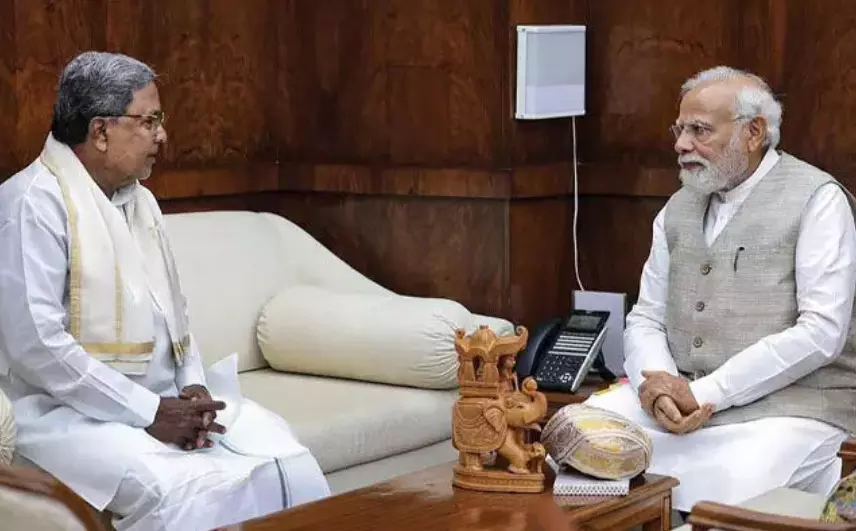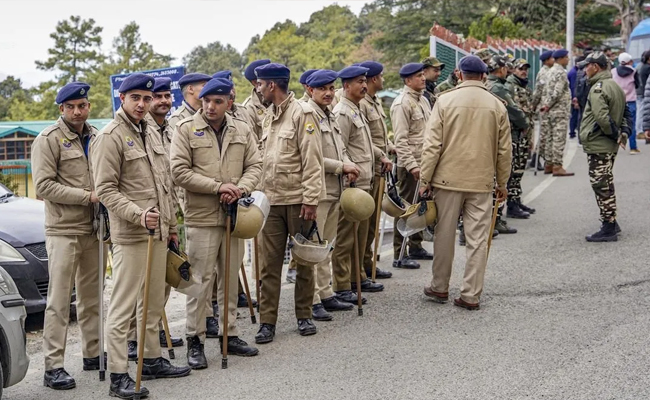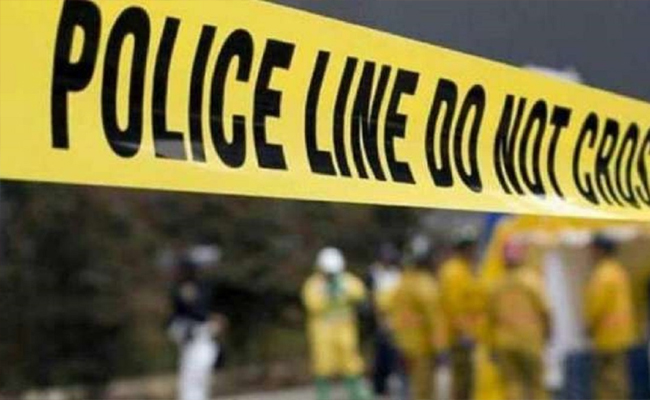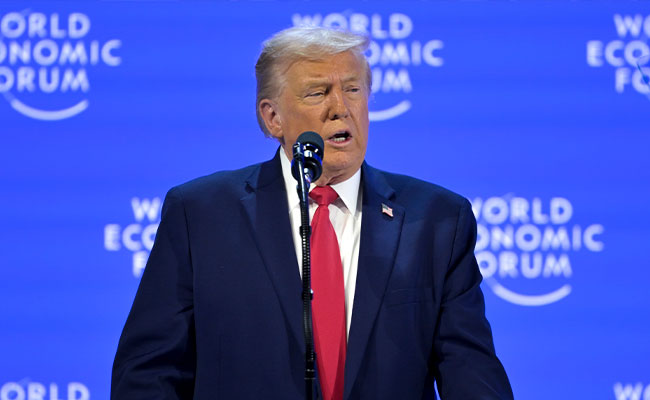Bengaluru (PTI): Karnataka Chief Minister Siddaramaiah, who boycotted the inauguration of India's second-longest cable-stayed Sigandur bridge in Shivamogga, has written to Prime Minister Narendra Modi, alleging a serious breach of protocol by the Centre.
In his letter sent on Monday, the Chief Minister claimed that the programme was held by the Union Ministry of Road Transport and Highways in Sagara taluk of Shivamogga, without consulting the state government, and his name was mentioned on the invitation card without any prior notification.
He said the ministry's proceeding with the programme, despite the state's disagreement, amounts to "sheer arbitrariness and defies the very spirit of co-operative federalism."
Siddaramaiah also claimed that, since, as per the technical report, the project is not yet complete, the programme should not have been conducted.
Union Minister for Road Transport and Highways Nitin Gadkari on Monday inaugurated or laid the foundation of various infrastructure projects, including the Sigandur bridge in Shivamogga.
The event was boycotted by Siddaramaiah and his cabinet.
He said he also spoke to Gadkari on July 11 after he came to know about the programme and even urged him to postpone it, given his prior commitment in the Indi taluk of Vijayanagara district.
He claimed that though the minister then agreed to postpone the event, it still went underway on Monday, as advertised.
"I wish to draw your (PM) kind attention to the foundation stone laying function and dedicating 9 National Highway Projects of total length of 88 km with an investment of more than Rs 2,000 crore, held on July 14 by Ministry of Road Transport and Highways in Nehru Field, Sagara taluk, Shivamogga district," Siddaramaiah said in his letter to Modi.
He said the ministry violated the protocol by not consulting the state before the programme, printing the name of an ex-chief minister, BS Yediyurappa, before the names of Deputy Chief Minister D K Shivakumar, Speaker of Karnataka Legislative Assembly U T Khader Fareed, and Chairman of State Legislative Council Basavaraj Horatti.
"The Government of Karnataka places on record its protest against such non-cooperative action. I do hope that all Central Ministries will be strongly advised to refrain from such discordant acts in future," he added.
The chief minister said that the construction of a major bridge (Sigandur bridge) across the Sharavathi backwaters and approaches between Ambargodu and Kalasavali on NH 369E on EPC mode was originally conceptualised by the state government in 2013, and subsequently implemented by the Centre.
Let the Truth be known. If you read VB and like VB, please be a VB Supporter and Help us deliver the Truth to one and all.
Ranchi (PTI): The body of a migrant worker from Jharkhand’s Giridih district killed in Saudi Arabia in October last year has arrived at Ranchi Airport, but his family refused to accept it over pending compensation, officials said.
Shikha Lakra, team leader of the state migrant control cell, told PTI that, before taking the body of Vijay Kumar Mahato, the family is demanding compensation from the private company where he used to work in the Arab country.
Mahato was killed in an alleged crossfire between the police and criminals.
“Since it was a bullet injury case, the matter is before a court in Jeddah. The final compensation may depend on the court’s decision,” Lakra said.
“The Indian Embassy informed us about the body’s arrival, and coordination was done with district authorities. Our role is limited to coordination in cases involving overseas employers and foreign jurisdiction,” she added.
Giridih Deputy Commissioner Ram Niwas Yadav said the authorities will try to convince the family to perform the last rites.
“We have already sanctioned Rs 5 lakh under the government scheme for migrant’s deaths abroad. The compensation payment might take some time,” he said.
The body is currently at the mortuary of Rajendra Institute of Medical Sciences (RIMS) in Ranchi.
The Family members said they will only accept it if the company provides written assurance regarding compensation. “Without that assurance, we will not receive the body,” said Ram Prasad Mahato, the deceased’s brother-in-law.
Mahato, a native of Dudhpaniya village in Madh Gopali panchayat under Dumri block, was employed as a tower line fitter. His family said he was struck by a bullet during a gunfight between local police and an extortion gang and later succumbed to his injuries.
Social activist Sikander Ali said Mahato is survived by his wife, two young sons aged five and three, and elderly parents.





